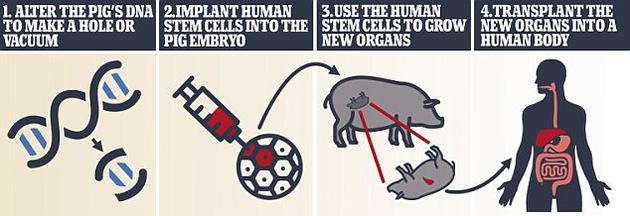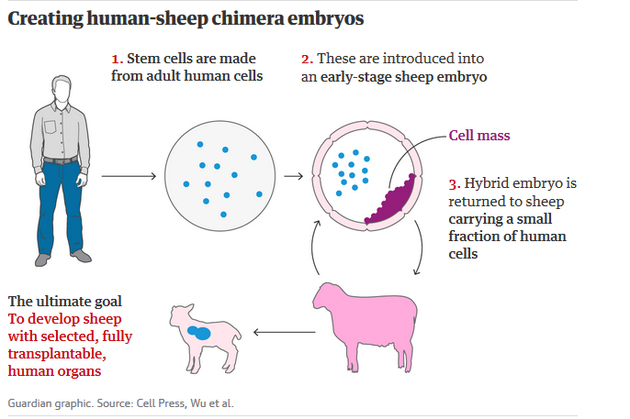Release date: 2018-03-05
Although scientists have successfully cultivated human pig chimeras, the medical community is excited about using them to cultivate human organs, but no research team has taken this work a step further. However, Stanford's research team has successfully transplanted the pancreas into mice, and now they are now importing human stem cells into sheep embryos for the first time and acquiring human sheep chimeras.
"We have developed mouse pancreas in rats and transplanted it into mice with diabetes. The results show that the disease can be almost completely cured," said project leader, Professor of Genetics at Stanford University, Hiro Nakuachi, in American Science. The annual meeting of the Development Association reported that "(This technology can be applied to humans) may take 5 to 10 years, but I think we will eventually be able to do it."

Researchers have previously developed human pig chimeras, but they have not been able to use this technology to grow human organs.
This groundbreaking outcome may help alleviate the global shortage of organ donations. In the United States, about 76,000 people are waiting for organ transplants. In the UK, this figure is 6,500, and each patient may have to wait for 5 years or more. On average, 32 patients die every day while waiting for organ donation.
Less than two years ago, the US government said it would provide funding for such controversial experiments, but then withdrew funds after receiving more than 20,000 complaints from animal rights groups. Pablo Ross, a zoologist at the University of California at Davis, participated in the study, acknowledging that he also had similar concerns.

The success of the project may even help to obtain a healthy pancreas that regulates blood sugar, making it possible to treat type 1 diabetes.
At present, human cells account for less than 1% of chimeras. If the ultimate goal is to meet the needs of human organ transplantation, it is necessary to gradually increase the proportion of human cells in the chimera, and this process will inevitably lead to ethics. problem. Ross said that everything depends on how much human cells can behave in animals. If they spread farther than expected, such as entering the brains of experimental animals, it is impossible to approve such trials for ethical reasons. However, Ross also insists that this is one of the most promising explorations in medicine.
"We now have this magical life-saving technology (referred to as organ transplant), but it is not enough to help everyone," Ross said. "Imagine if you can develop a mature organ in 9 months, you will How.†He also pointed out that these organs can not only be used to save lives, but also to treat other diseases such as diabetes.
Scientists are not currently able to harvest organs from pigs or sheep and transplant them into the human body, but they believe that human stem cells may be one way to solve this problem. Researchers have successfully developed human pig chimeras, but it is not currently available to breed human organs.
To breed human sheep chimeras, the research team first developed embryos containing human cells and sheep cells and allowed them to survive for three weeks. Currently, researchers plan to inject human stem cells into sheep embryos, and like human DNA to grow organs such as the pancreas inside the chimera. If the experiment is successful, it will be the first human organ in the world to grow in sheep.
Source: Sina Technology
Animal Medicine Premix,Tilmicosin Premix,Tylvalosin Tartrate Premix,Animal Products Medicine
Sichuan Aibang Weiye Biological Engineering Co., Ltd. , https://www.aibangpharm.com